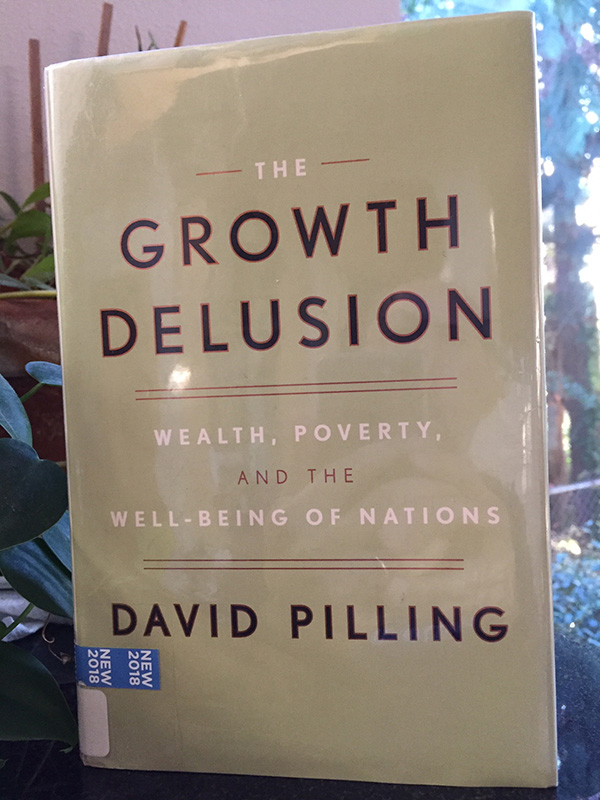
 Fifty years ago, presidential candidate Bobby Kennedy shared these words:
Fifty years ago, presidential candidate Bobby Kennedy shared these words:
Even if we act to erase material poverty, there is another greater task, it is to confront the poverty of satisfaction – purpose and dignity – that afflicts us all. Too much and for too long, we seemed to have surrendered personal excellence and community values in the mere accumulation of material things. Our Gross National Product, now, is over {$17 trillion} dollars a year, but that Gross National Product – if we judge the United States of America by that – that Gross National Product counts air pollution and cigarette advertising, and ambulances to clear our highways of carnage. It counts special locks for our doors and the jails for the people who break them. It counts the destruction of the redwood and the loss of our natural wonder in chaotic sprawl. It counts napalm and counts nuclear warheads and armored cars for the police to fight the riots in our cities. It counts Whitman’s rifle and Speck’s knife, and the television programs which glorify violence in order to sell toys to our children. Yet the gross national product does not allow for the health of our children, the quality of their education or the joy of their play. It does not include the beauty of our poetry or the strength of our marriages, the intelligence of our public debate or the integrity of our public officials. It measures neither our wit nor our courage, neither our wisdom nor our learning, neither our compassion nor our devotion to our country, it measures everything in short, except that which makes life worthwhile.
– Robert “Bobby” Kennedy, University of Kansas, 1968
The Growth Delusion by David Pilling walks in detail from the creation of GDP in 1934 by Simon Kuznets through why it is a poor measure of poverty and an even poorer measure of quality of life.
The book spends most of its pages explaining what GDP actually measure, what it fails to measure, and how that compares to other measures such as Gross National Happiness.
If you are cynical about “growth for growth’s sake” or wondering how exponential growth can continue for the next hundred years as it did over the last hundred years, then this is a good book to pick up and read.
If GDP isn’t something you believe, this is a good read to skip.














